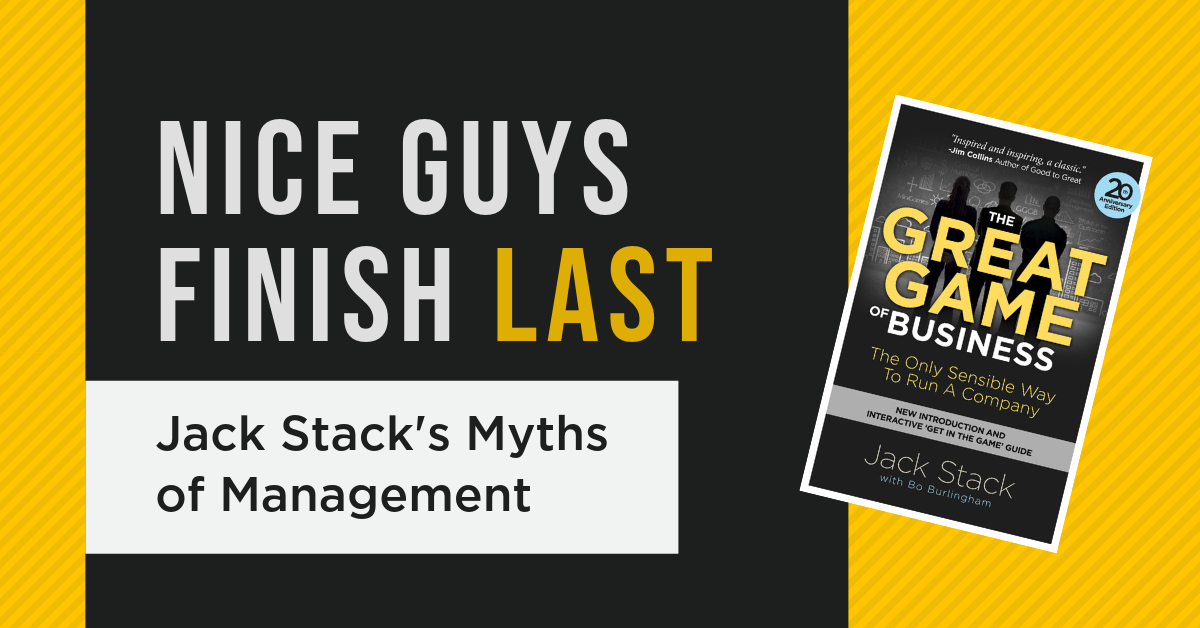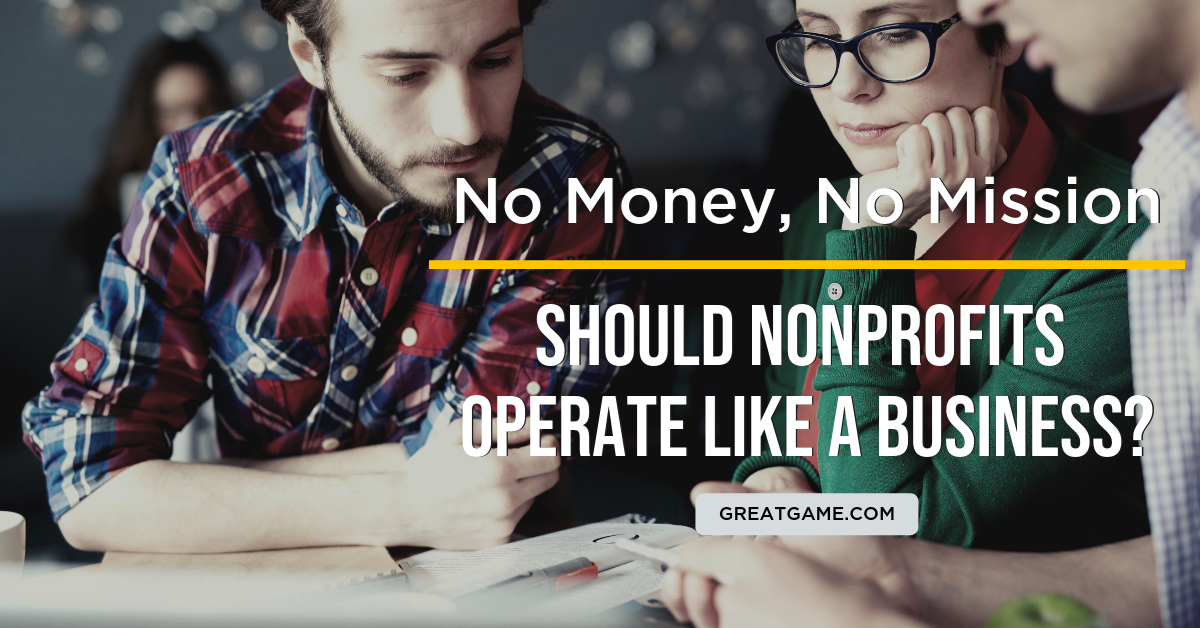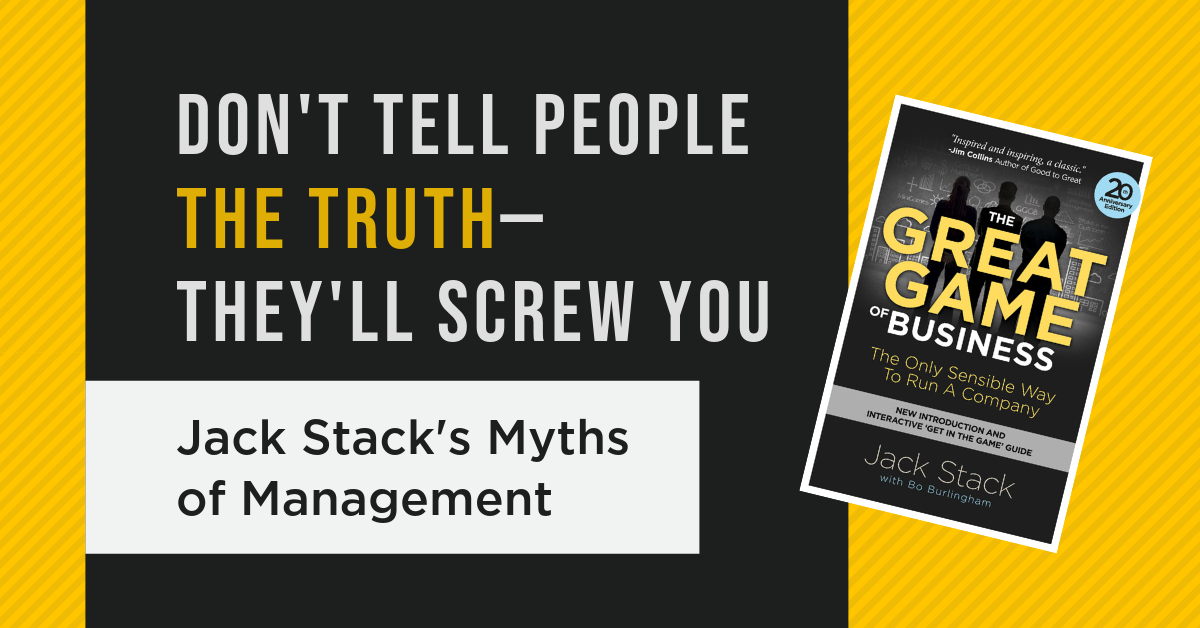Excerpted from The Great Game of Business. We've all heard how you have to be an S.O.B. to succeed in business. How you have to step on other people to get results. How it's okay to throw your weight around because it's a tough world and you win through intimidation. It's all a crock. I've worked on the shop floor. Believe me, nobody there wants to hear a guy telling you to bust your butt if he's rolling around in a Mercedes and beating up the people he works with. When you flaunt what you've got, when you intimidate, when you treat people badly, you lose power. I've watched guys like that throughout my life. I've learned it's just a matter of time before they get theirs.
Read More
With different levels of employees, do you structure bonus and reward programs equally? Does GGOB implementation differ between professional and support staff? Are staff privy to others' salary information? Our Great Game™ coaches answer how to tackle these tricky questions in this segment of "Ask the Coaches."
Read More
I hear it almost every day: “But we are different…” or “That could never work with our organization because…” Five years ago as the CEO of a well-established nonprofit agency, I used those excuses when approached by one of my board members, Tim Stack, about using the Great Game of Business in my nonprofit. Tim was the General Manager of one of the SRC subsidiaries and literally grew up with the Great Game of Business. Over the next four years, he worked one-on-one with me to break down all of the misconceptions that I had about why nonprofits could not apply the same principles found in The Great Game of Business. I had a Master’s in Nonprofit Management and was never exposed to the concepts that Tim was discussing with me.
Read More
Excerpted from The Great Game of Business. You may wonder if it's possible to play the Great Game of Business anywhere—in a division of a giant conglomerate, say, or in a factory with a dominant union, or in a company that doesn't share equity with employees or have an intelligent bonus system for employees. In fact, The Game started in a place exactly like that, in a very small department at the huge International Harvester plant in Melrose Park, Illinois. It was there that I learned most of what I know about managing, and everything I've tried to forget about leadership.
Read More
If any industry would have difficulty with transparency, one might argue that it would be government entities, but that has not stopped Greene County, Missouri from opening the books. Greene County began playing their version of GGOB— The Great Game of Government— in 2012 by modifying Great Game practices to fit the needs of a government organization. Their efforts and financial results earned them the All-Star Pioneer Award in 2015, which honors an organization that is the first in their field to implement and practice the methodology of The Great Game of Business. After years of progress in opening the books and improving upon Great Game practices, the officials at Greene County challenged themselves to take transparency to the next level.
Read More
Newbies to the Great Game, seasoned company owners, and CEOs alike are often bothered by this question: How do I get my leaders and front-line employees more engaged in The Game? A few years back, I was asking this question at my own company, Tasty Catering. While our company soared immediately following the implementation of GGOB, our Game engagement faded after about eight months. Although financial improvements were still evident on our scoreboard, I could tell by the faces and body language in our weekly Huddle that something was “off.” We needed a boost.
Read More
Margins in the landscaping business continue to shrink—and it’s harder than ever to grow the top line as well. Willoway Nurseries, a leading US wholesale supplier of nursery products, understands this better than anyone. This nursery, founded in 1954, grows wholesale trees, shrubs, perennials, and seasonal color crops and ships to retailers and contractors across 26 states. With a customer base of more than 1,200 independent garden centers and landscape contractors, this company has personally seen the effects of industry-wide shrinking margins and a need for drastic change in how they operate their business. To confront these challenges, Willoway needed a way to gain efficiencies and improve quality. They decided to open the books to communicate the realities of operating a business to their team and what it takes to be profitable.
Read More
A financial forecast in business is a prediction of what’s going to happen. Not what you hope will happen, not what you fear will happen, but your best guess as to what’s likely to happen. While reviewing and analyzing company performance and financials is an important process in the business world, the past cannot be changed. Forecasting is a tool that makes financial reporting a forward-focused, educational process where changes and adjustments can be made to influence the outcomes of the numbers. What does it take to properly forecast? Here are three tips on making forecasting work in your business:
Read More
Let's take it back a few years....14 years before the famous story of SRC's establishment in 1983. Jack Stack is learning the ins-and-outs of manufacturing, the detailed metrics involved in the industry, and receiving training and education provided by his company, International Harvester. In 1983, everyone is struggling for business, but this company is on the verge of failure. International Harvester owes $6 billion, interest rates are at 20%, and the company lays off 1000 workers weekly for two years straight. Jack and the other managers of the Springfield plant are fully focused on saving the jobs of their 119 employees and keeping the business from shutting down. This critical position shaped Jack's thoughts on how teaching everyone in the company the metrics of a successful and sustainable business through financial literacy and reporting is the only sensible way to run a business.
Read More
Through the years, the team at SRC and The Great Game of Business have seen our share of doubters, disbelievers, critics and skeptics - everyone from CEOs, to managers, to hourly employees who said open-book management couldn't work... that teaching employees about business was crazy…that transparency was not necessary in business. Some of the biggest disbelievers came from right here at SRC…the birthplace of open-book management! One doubter with a particularly fascinating story is Denise Bredfeldt, a former transmission rebuilder at SRC during the early days of The Great Game of Business. To be fair, Denise lived through the dismal buyout of International Harvester; a time when trust and morale were at an all-time low. Before SRC was founded, Denise even circulated an underground newsletter mocking the company culture and management, and she wasn’t about to jump on the open-book bandwagon.
Read More

.png)


.png)


.png)
.png)

.png)
.png)
.png)




.png)




-5.png)
.png)
